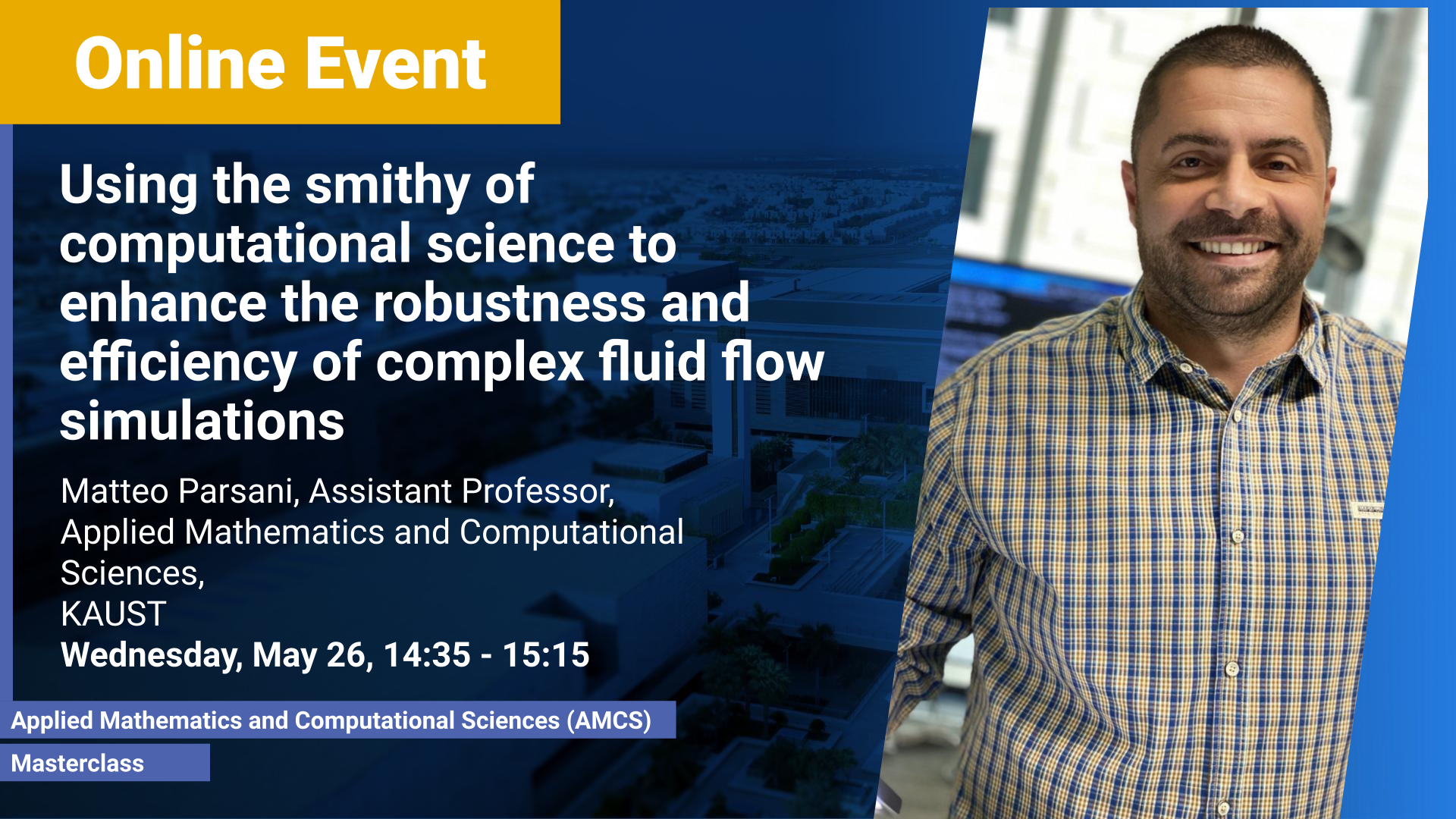Masterclass in Numerical Analysis and Scientific Computing
Abstract
This talk will review the recent shift in the construction and modern analysis of a large class of spatially and temporally adaptive methods whose properties are very close to the current analytical knowledge we have about hyperbolic or mixed hyperbolic-parabolic partial differential equations (PDEs) in computational physics. Thus these algorithms can be regarded as the elite methods in the field. Next, we will show examples of how the robustness and efficiency of the fully-discrete representation of PDEs can be enhanced using computational science's smithy, i.e., "modern" numerical analysis. The talk will showcase complex flow problems in aeronautics, aerospace, and automotive sectors, provide preliminary results in other fields and present an outlook for future research directions where data science can currently be the linesman.
Brief Biography
Matteo Parsani is an Assistant Professor of Applied Mathematics and Computational Science and Mechanical Engineering at King Abdullah University of Science and Technology (KAUST). He received his B.Sc. and M.Sc. in aeronautics and astronautics from Politecnico di Milano (Italy) and his Ph.D. in mechanical engineering from the Vrije Universiteit Brussel (Belgium). He trained as a postdoc at KAUST and in the Computational AeroScience branch at NASA Langley Research Center (USA).
He authored more than 60 scientific papers published in international scientific journals. He is the author of one upcoming book in Springer on nonlinearly stable hp-adaptive algorithms and time integration schemes for compressible computational fluid dynamics.
In 2021 he was an invited speaker at MECOM - ACA, the South American Congress in Computational Mechanics. In 2022, he was invited to present his work on entropy stable and high-performance solvers for compressible CFD at the Journal of Computational Physics Seminar Series. In February 2022, he was elevated to senior fellow of the American Institute of Aeronautics and Astronautics (AIAA).
Professor Matteo Parsani's research interests are related to developing novel, robust, and scalable numerical methods on unstructured grids for partial differential equations and their application to solving realistic flow problems in various natural science and engineering areas. The application domains currently driving Matteo's research are compressible computational aerodynamics (e.g., highly-separated turbulent flows), dense gas flows simulations (e.g., supercritical fluids), computational aeroacoustics for noise reduction, and molecular communication.
In the context of his collaborations with the McLaren F1 Racing Team, NASA LaRC, Boeing, and Airbus, his group has carried out the design and implementation of new robust algorithms, which culminated in the deployment of the first prototype of scalable entropy stable solver for unstructured grids, one of the NASA 2030 milestone set to be delivered around the second half of this decade.
One of Professor Parsani's main goals is to develop efficient predictive computational fluid dynamic technologies for optimizing engineering designs based on flow dynamics and heat transfer that improve energy efficiency and reduce environmental impacts.
